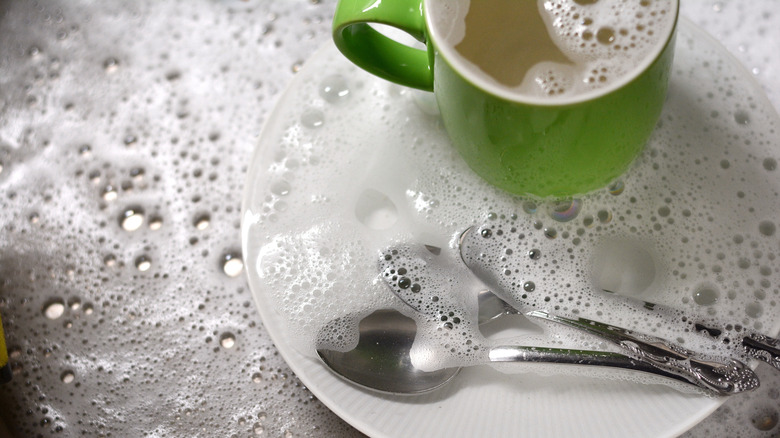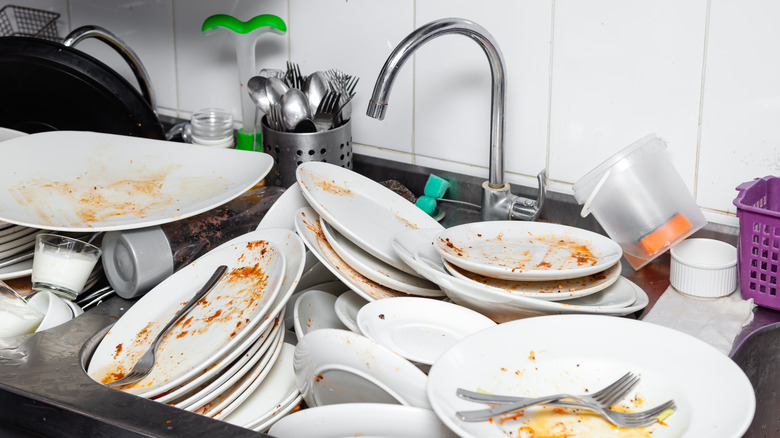You Should Rethink Letting Your Dishes Soak In The Sink. Here's Why.
Whether it's laziness or with good intention to get the greasiest of dishes clean, we all are most likely guilty of leaving dishes soaking in the kitchen sink. While you think that soaking the pots and pans in soapy water will make messes easier to get off, you are actually making your dishes even dirtier.
How, you may ask? The longer the dishes stay in the sink unwashed, the longer they have time to form microbes — especially in warm, but not hot water (via MentalFloss). The timing of washing your dishes is especially important if you used the dishes with raw meat or seafood. In those cases, it's best to wash right away.
Bacteria that forms on your dishes can also make its way out of your sink and around your kitchen, as it can stay alive for up to four days (via Taste of Home). It is also problematic to subject yourself to this bacteria by putting your hands in the dirty dish water and continuing to clean the kitchen.
Best practices for washing your dishes
At a minimum, you should rinse your dishes and put them in the dishwasher to contain the germs. This solution may work for you if you're not in the mood to scrub your dishes, because at least they are set in an area that won't be as likely to be touched as the sink and that limits the spread of germs throughout your kitchen.
But if you want to practice the proper way to wash dishes, you should don a pair of rubber gloves and submerge your dishes in hot water of at least 170 degrees for 30 seconds to kill off harmful germs (via Cooking Light). If you want to be sure your dishes are sanitized, you can create your own solution by combining one tablespoon of unscented chlorine bleach per gallon of water.
What is also counterintuitive to how many of us clean dishes is the use of sponges, which can become "germ hotbeds" if not cleaned often enough, according to Mental Floss. It's best to opt for a scrubber or brush instead of a sponge and to be sure to use a clean dish towel for drying.


